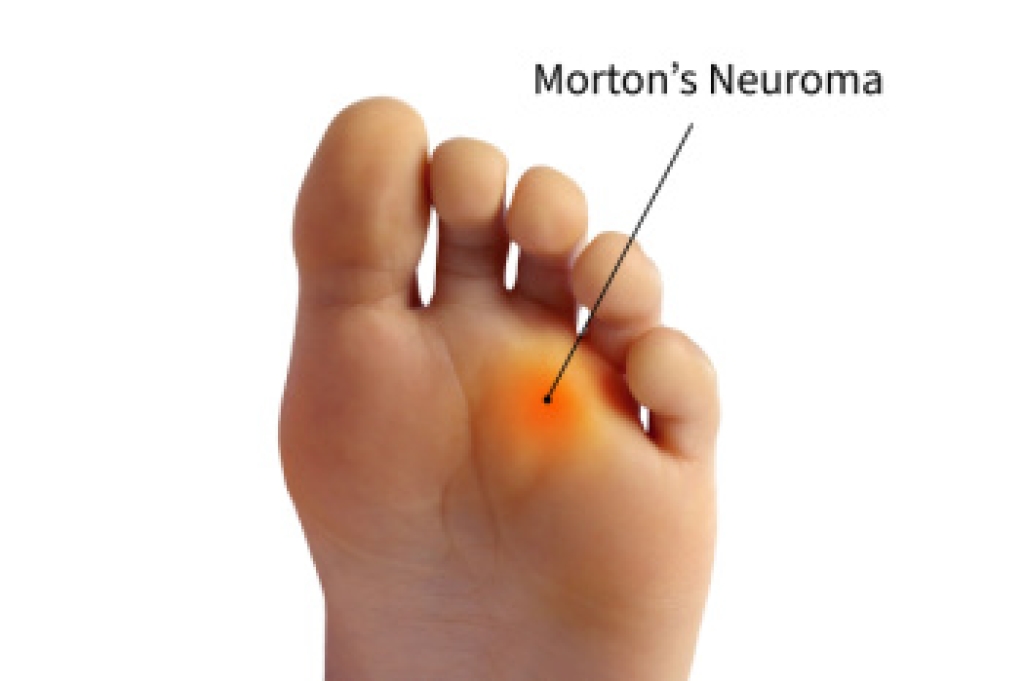
Morton’s neuroma is a painful condition that develops when the tissue around a nerve between the toes thickens, often due to pressure from tight shoes, high heels, or repetitive impact activities. It may look subtle from the outside, but many people feel a sharp, burning, or tingling sensation in the ball of the foot that can radiate into the toes. Some describe the feeling as standing on a pebble or having a fold in the sock that will not smooth out. Swelling is sometimes present, although it is not always visible. Morton’s neuroma most commonly occurs between the third and fourth toes, likely because this area experiences the greatest compression during walking. A podiatrist can diagnose the condition through a physical exam, gait evaluation, and imaging if needed. Treatment options may include footwear modifications, custom orthotics, anti-inflammatory therapies, or targeted injections to reduce nerve irritation. If you experience persistent forefoot pain or numbness, it is suggested that you make an appointment with a podiatrist.
Morton’s neuroma is a very uncomfortable condition to live with. If you think you have Morton’s neuroma, contact one of our podiatrists of Kokomo Foot & Ankle Center. Our doctors will attend to all of your foot care needs and answer any of your related questions.
Morton’s Neuroma
Morton's neuroma is a painful foot condition that commonly affects the areas between the second and third or third and fourth toe, although other areas of the foot are also susceptible. Morton’s neuroma is caused by an inflamed nerve in the foot that is being squeezed and aggravated by surrounding bones.
What Increases the Chances of Having Morton’s Neuroma?
- Ill-fitting high heels or shoes that add pressure to the toe or foot
- Jogging, running or any sport that involves constant impact to the foot
- Flat feet, bunions, and any other foot deformities
Morton’s neuroma is a very treatable condition. Orthotics and shoe inserts can often be used to alleviate the pain on the forefront of the feet. In more severe cases, corticosteroids can also be prescribed. In order to figure out the best treatment for your neuroma, it’s recommended to seek the care of a podiatrist who can diagnose your condition and provide different treatment options.
If you have any questions, please feel free to contact our office located in Contact Us . We offer the newest diagnostic and treatment technologies for all your foot care needs.
